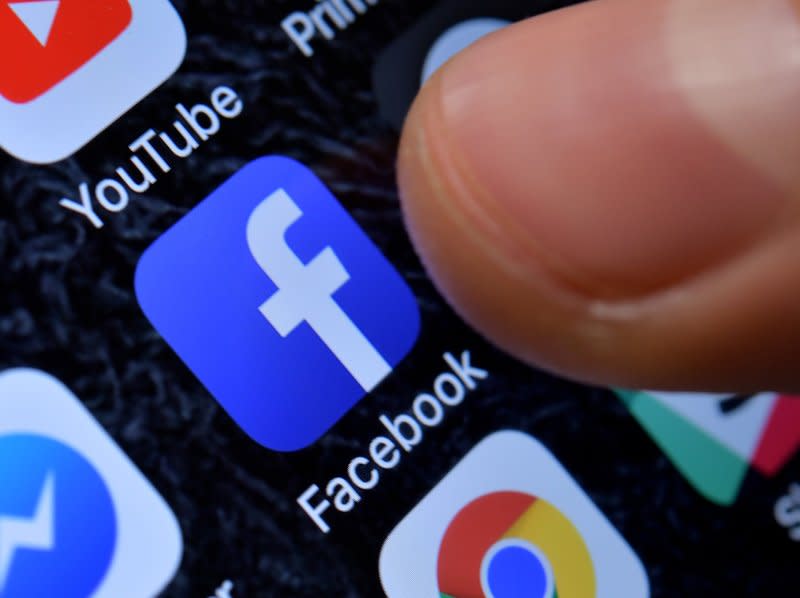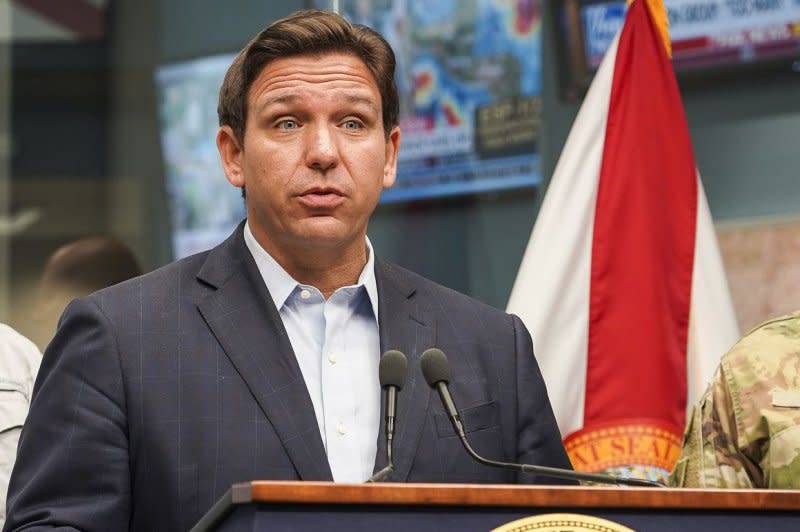Ban on social media for minors clears Florida Senate

- Oops!Something went wrong.Please try again later.
Feb. 22 (UPI) -- The Florida Senate on Thursday approved a bill that would bar children under the age of 16 from using social media sites.
HB-1 cleared the Senate with a bipartisan 23-14 vote. The bill is now headed back to the Florida House of Representatives, which passed the bill last month, to approve the Senate's changes.
The bill would require social media sites to terminate any existing accounts for minors under the age of 16 and bar them from creating new accounts.
Senators tweaked the bill's definition of "social media" to mean any site that has "addictive features" such as infinite scrolling, autoplay videos and push notifications.
The modified bill also requires social media and pornographic websites to use anonymous age verification through a third-party service, which would not be able to retain personal information.

Pending House approval, the bill will be sent to Florida Gov. Ron DeSantis, who has voiced concerns about the bill's ability to stand up to legal scrutiny.
"I'm sympathetic to, as a parent, what's going on with our youth," DeSantis said. "But I also understand that to just say that someone that's 15 just cannot have it no matter what, even if the parent consents, that may create some legal issues."
After the Senate vote, DeSantis said he didn't think the bill was "there yet," so it may have to go back to the Senate to be modified again.
Proponents of the bill pointed to mounting evidence that social media companies' practices have harmful effects on children's mental health.
"We can only spend so much money on the treatment (for mental health issues), and not address the symptoms," said Sen. Erin Grall, R-Fort Pierce, a bill sponsor. "No amount of money can take on these hundreds-of-billions-of-dollars companies."
The U.S. Surgeon General last year issued an advisory warning of the negative impact of prolonged social media use on children and called on lawmakers to strengthen safety standards and limit access to harmful content.
"Children are exposed to harmful content on social media, ranging from violent and sexual content, to bullying and harassment," U.S. Surgeon General Dr. Vivek Murthy said in a statement. "And for too many children, social media use is compromising their sleep and valuable in-person time with family and friends."
Opponents of the bill said it should be parents' responsibility to manage their children's social media use and that the bill contradicts Florida Republican's "parental rights" agenda.
"This isn't 1850," said Sen. Jason W. B. Pizzo, D-Hollywood. "While parents show up to school board meetings to ban books, their kids are on their iPads looking at really bad stuff."
Grall, however, said the bill isn't about the state usurping parent's rights, rather its about parents having the right to ensure their children are kept safe from harmful content.
She argued cyberbullying and the addictive nature of social media are compromising children's mental health and leading many to contemplate suicide.
"They [social media companies] know what they're doing to manipulate children," Grall said. "They know cyberbullying happens. They know the cyberbullying results in, 'You should kill yourself now.' They know it has resulted in the harm or death of children."
Utah, Louisiana, Texas, Arkansas and Ohio also have laws restricting social media access to minors, but federal lawsuits have put these laws on hold, something DeSantis hopes to avoid.
New York City earlier this month sued TikTok, Instagram, Facebook, Snapchat and YouTube, alleging these companies leverage addictive features taken from the gambling and cigarette industry to drive advertising revenue at the expense of young people's mental health.
"Over the past decade, we have seen just how addictive and overwhelming the online world can be, exposing children to content they are not ready for, disrupting the educational process and seriously damaging their self-esteem and well-being," New York City Mayor Eric Adams said when the lawsuit was announced.
The government of Nepal outright banned TikTok in November, claiming the app had negative effects on the nation's "social harmony."
Nepal's Council of Ministers argued "continuous propaganda" and an increase in "social, religious and communal relations activities" on the platform was contrary to national interest.
Gagan Kumar Thapa, general minister of the opposition Nepali Congress Party, said he disapproved of the ban and accused the Nepalese government of attempting to stifle "freedom of expression and personal freedom."

